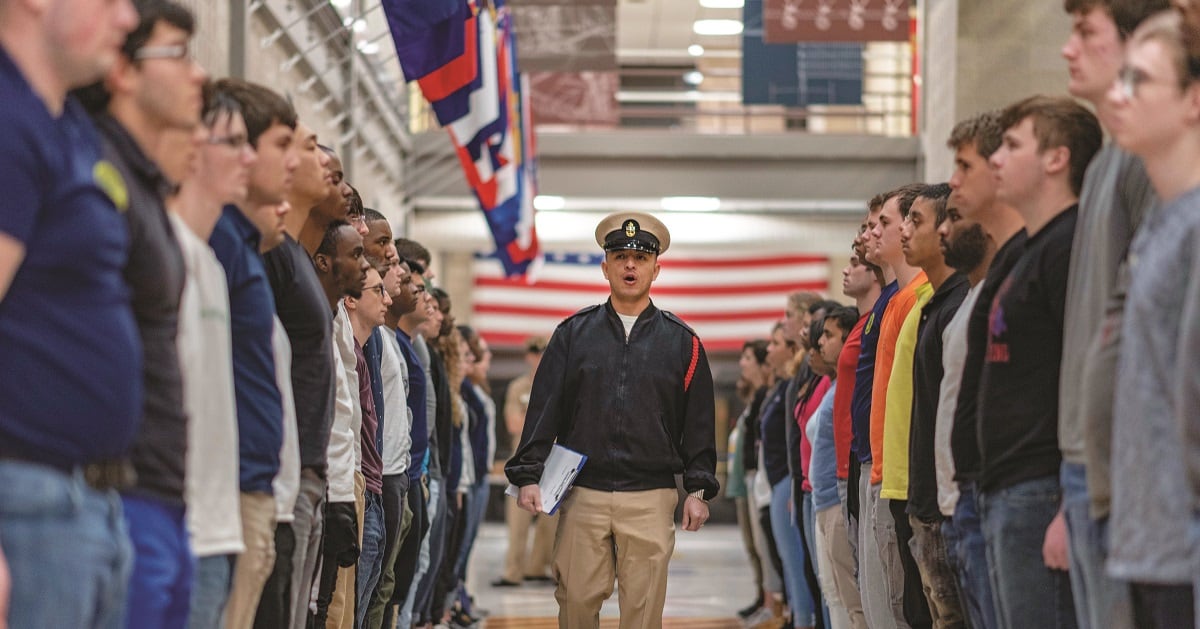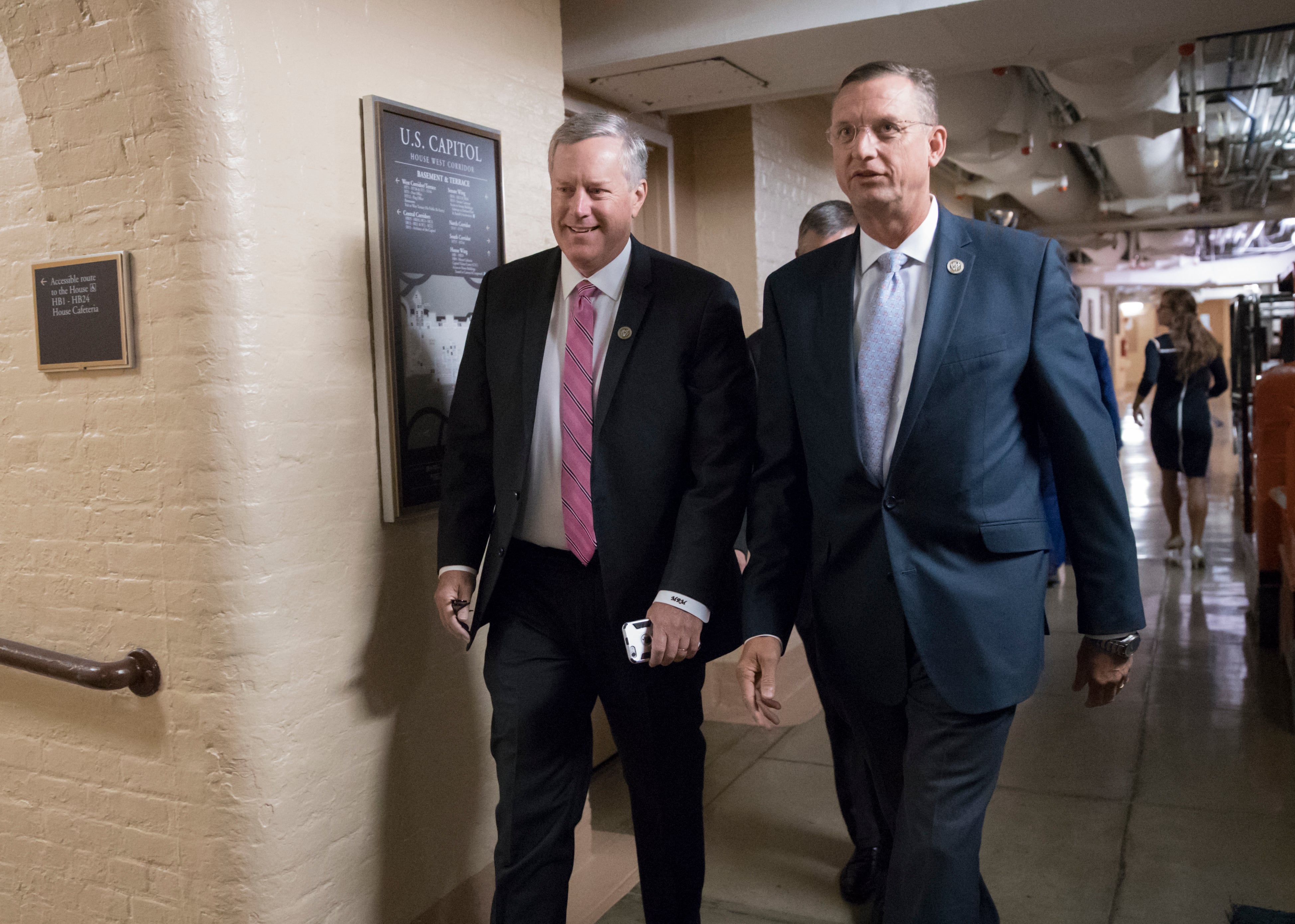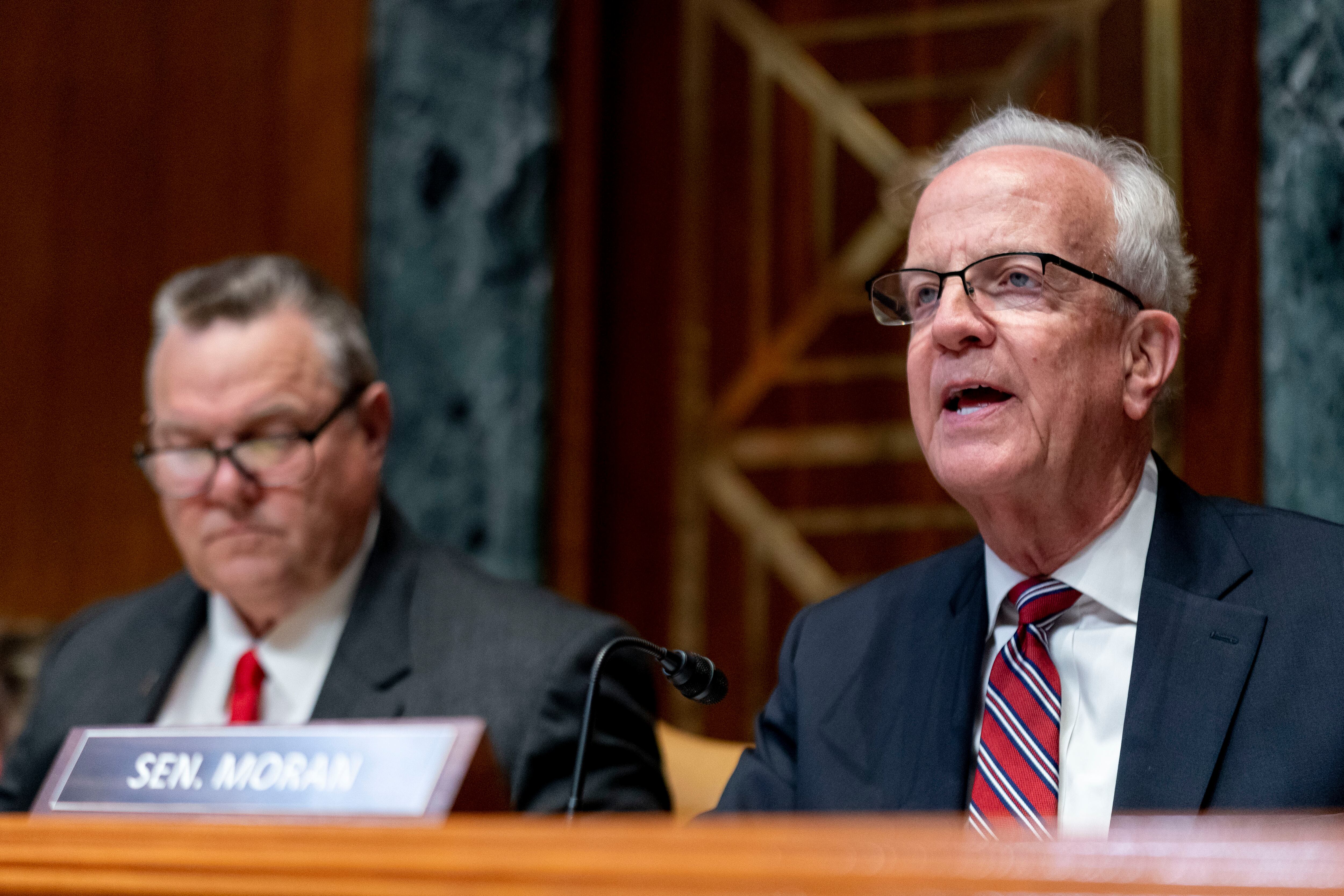Amid an ongoing military recruiting crisis, the Navy is forcing its more than 3,900 recruiters to work six days a week for the foreseeable future, according to officials and leaked communications obtained by Navy Times.
In an email to recruiters Wednesday as the new policy rolled out, the head of Navy Recruiting Command, Rear Adm. Alexis Walker, called the increased workload “a warfighting imperative.”
Walker’s email warns that the service expects to miss its recruiting goal for this fiscal year by 6,500 to 7,000 sailors. That follows a similarly dismal recruiting year in Fiscal Year 2022, in which the Navy made its recruiting mission but had to drain its entire delayed-entry-program recruit pool in the process. The other services are grappling with similar recruiting challenges.
“We’re getting hit with a shit ton of bad news,” one of the recipients of the email said, calling it, “the most condescending, rude, gaslighting email I’ve ever seen in my entire life.” That from a petty officer 1st class working as a recruiter in the south, speaking anonymously to avoid professional retribution.
The admiral lays out the crisis, and according to the recruiter who received it, says it’s up to them as to how long this 6-day work week will last.
“I am not being dramatic when I say that our inability to bring in the right numbers and types of people…impacts our ability to fight and win,” Walker wrote in the email, which officials verified. “Recruiting is the prime mover—the thing that makes everything else go—for the entire Navy.”
“If we are unsuccessful in our mission, it negatively impacts Fleet manning (gaps at sea go up), with potential ramifications for promotion and retention, end strength, and how we fight,” he added.
While rumors have spread among Navy recruiters this week that a new policy will force them to serve an additional year as a recruiter, and that sailors coming to recruiting will have to leave their old command six months early, officials with the office of the Chief of Naval Personnel said Thursday that such a policy has not been enacted, although it is within the Navy’s purview.
RELATED

“There have been no official policy changes to recruiting duty orders, early transfers, or extensions,” the command said in a statement. “The Navy is considering all available options in order to fully man our recruiting stations as we continue to address the projected recruiting shortfalls for 2023.” Military.com first reported news of the six-day work week.
While Walker’s email gives no guidance regarding when Navy recruiters will return to normal work weeks, he writes that recruiters should expect to work six days a week through the end of the fiscal year in September. He writes that he did not make the decision lightly and has tried to balance the mission with the “fatigue, mental health, and stress on the family” realities that recruiters face and notes that recruiters can go back to normal if they bring in more bodies.
Walker’s email states that commanders “will routinely reassess the business environment with a goal of getting back to normal sooner.”
He further calls on his COs, wardrooms and chiefs to ensure sailor recruiters have what they need to get the mission done.
“Address specific issues that impact Sailors who are single parents, what will be required of civilians, and what a six-day work week looks like in your respective (areas),” Walker writes. “If you run into a problem that you feel cannot be solved at your level, use your chain of command immediately. I want all obstacles removed to ensure Sailors are able to focus on recruiting.”
“I want to place the ball in your court and let you control how long we need to be” on a six-day workweek, Walker’s email states.
The petty officer from the south took that as the admiral telling the recruiters’ job to dig themselves out of this situation. The recruiter blamed everything from a tone-deaf Navy marketing strategy to a new medical records review system as reasons why it’s been harder to bring new bodies into the sea service.
The recruiting missive means the Navy will be losing at least one sailor soon. The petty officer had planned to do 20 years and retire but said he is now looking to leave the service as soon as he can.
Geoff is the managing editor of Military Times, but he still loves writing stories. He covered Iraq and Afghanistan extensively and was a reporter at the Chicago Tribune. He welcomes any and all kinds of tips at geoffz@militarytimes.com.





